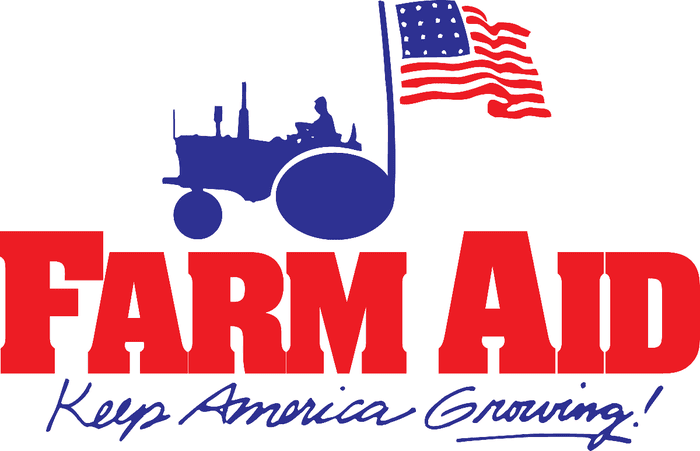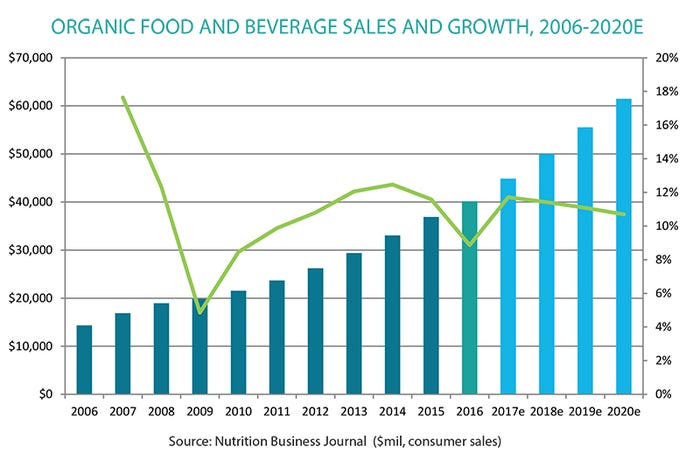
It’s been more than 32 years since John Mellencamp and Willie Nelson climbed onto the stage at the first Farm Aid concert in the midst of the foreclosure-driven 1980s “Farm Crisis.” In those 32 years, the natural products industry, and supplements in particular, have grown out of the health food store and into the mainstream, with success measured in the many billions of dollars.
Those farmers? They’re still facing big risks for their finances, small prices for the food they produce, and huge policy challenges in policy as Washington grows increasingly friendly to big corporations.
The problems didn’t go away. Farm Aid didn’t go away either. The organization remains a symbol of the struggles faced by family farms and an umbrella organization that ties together local and national efforts to keep those farmers on the land. For those efforts and for the increasing role they take in helping more farms transition to organic, the organization is being recognized with the NBJ Mission and Philanthropy Award. There are few missions more closely aligned with nutrition and natural products than Farm Aid’s mission.
Follow the leader
But it’s not just Farm Aid’s grants to farmers and political advocacy that helped us decide the award. The award is also a nudge to the nutrition industry to get more involved in the policy arguments that shape how food is grown.
Walk the aisles at Natural Products Expo West, or really any trade show with a natural nutrition element, and you are almost certain to see dozens of pictures of farms. Food comes from farms, after all.
What you won’t see in those same aisles? Farmers, or at least not very many of them. The connection between those farmers and the natural products industry would seem obvious, but it’s not always well tended.
“If you ask farmers and people working in agricultural policy whether they are hearing enough from the natural products industry, they’ll say ‘no,’” says Andrew Pittz, an Iowa farmer turning aronia berries into a superfood supplement.
Farm Aid, says Pittz, is a place where that connection can be strengthened. “It’s one more logical bridge that the natural products industry can help build with the farmers.”
Food for thought
A bridge to the farmers is vital for nutrition and natural products, says Bill Chioffi, vice president of global sourcing at Gaia Herbs. The company works with small farms and agricultural programs to get more farmers interested in growing medicinal herbs. Helping farmers just makes sense for the supplement industry, Chioffi says.
The availability of domestically-sourced ingredients grows increasingly important when a global supply chain is vulnerable to global threats, including climate change. A stronger domestic supply chain isn’t going to happen on its own. The current political situation in Washington makes it clear that companies need to step up and get involved with agriculture. “If you are awake in 2018 and reading anything that’s actually happening,” Chioffi says, “you know Washington is not doing anything to support the actual farmers.”

Farm Aid, he adds, is an easy way to get involved. “Farm Aid has already built the public awareness and perception. You don’t need to start from the ground up,” Chioffi says. “They’ve already done the legwork.”
Jim Habana-Hafner works on the frontlines of the struggle to save farms. As executive director at New Hampshire-based Land for Good, he fights to make sure farmland stays farmland. For him, Farm Aid stands out. They provide grants to Land for Good, but they are also leaders in the fight for a better food system that could benefit the natural products industry. “They were doing this long before anybody was into good food, local food,” Habana-Hafner says.
In the current pro-big business political climate, that kind of work, and an organization that ties together so many agricultural advocacy programs is as vital as it has ever been. It’s more than just grants to programs like his, Habana-Hafner says. “There are big structural issues that have to be dealt with at the policy level.”
In transition
What the non-profit does with the money raised by the annual Farm Aid concert is directly related to the natural products industry. More and more, says Farm Aid communications director Jennifer Fahy, the assistance they give farmers comes in the form of grants and support to transition from conventional to organic agriculture. When farmers call the Farm Aid hotline, they may be looking for general answers and support, but Farm Aid staffers keep the organic agenda close at hand. “At what point is it possible to talk to them about transitioning, about how to do things differently on the farm?” Fahy asks.
That transition and support, says Pittz, is where the natural products industry could be more involved. They don’t have to fund the farmers moving to organic, though that would be nice. They do need to align with programs like Farm Aid to make sure government policy doesn’t stand in the way of that move. “I’ve said the natural products industry is probably the best industry to embrace this relationship,” Pittz says. “But really it may be the only industry in a position to do so.”
And Farm Aid may be the best partner in that relationship, says Pittz, who was selected as a Farm Aid farmer hero in 2013.
Cultivating a relationship
Fahy says the organization is eager to work with natural products companies. The Farm Aid hotline wasn’t designed to connect brands with farmers, but the connections to farmer cooperatives and food hubs make the organization a place where more of that could happen. An assurance that they can sell what they grow and produce is crucial for farmers. But Fahy says Farm Aid sees more than just those contracts and connections when it looks at the natural products industry.
It sees potential for a new angle of influence on agriculture policy. The U.S. natural products industry has $200 billion worth of influence. With the Farm Bill up for renewal, that influence is needed immediately, Fahy says.
“If we don’t support our family farms now,” she says. “Were not going to have them at all.”
 This article is from the February issue of Nutrition Business Journal. Download the full issue with all of the 2017 NBJ Award winners for free here.
This article is from the February issue of Nutrition Business Journal. Download the full issue with all of the 2017 NBJ Award winners for free here.
About the Author
You May Also Like






